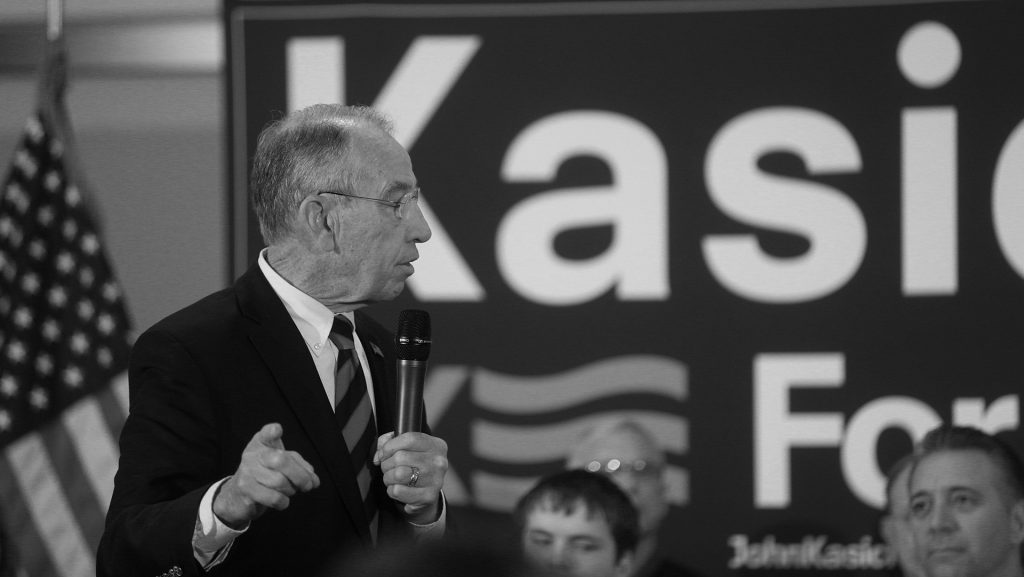After the United States’ fourth-deadliest school shooting last week, inaction or loosening gun laws is no longer an option.
On Feb. 14, a gunman opened fire in a Parkland, Florida, high school, killing 17 people. But as students of the post-Columbine generation, this shooting was not as much of an anomaly. Like many schools across the country, they prepared for a disaster like this with the same routineness as their fire drills.
The gunman, 19-year-old Nikolas Cruz, was a former student with a history of violence. The FBI missed at least two reports of him wanting to be a “professional school shooter.” And yet, he was able to legally purchase the AR-15 he used in fourth-deadliest school shooting in U.S. history.
In the aftermath of every major mass shooting, there’s a rigorous effort by politicians to persuade the American public that mental illness is to blame for mass shootings, not guns. But these same politicians also make it easier for those with severe mental illness to purchase guns. Sens. Chuck Grassley and Joni Ernst, R-Iowa, have irresponsibly pushed both of these conflicting narratives unapologetically.
Over 15,000 people died in America in 2017 from gun violence, according to the Gun Violence Archive. It’s time for the hypocrisy to stop and for action to start.
Iowa senators deliver mixed messages on gun violence
After the Florida shooting, Grassley said the government has not “done a very good job” of preventing those with severe mental-health issues from accessing guns.
However, Grassley was the lead Senate sponsor of a bill that lifted Obama-era mental-health gun restrictions introduced after the Sandy Hook Elementary School shooting. Finalized in December 2016, the now-nullified rule added the names of Americans receiving Social Security checks for mental illness to the FBI’s background-check system. House Resolution 40, which passed in February 2017 with full support of the GOP, blocked that reporting.
While there’s no indication whether the Florida school shooter received such benefits, the messages Iowa’s senators have sent about mental illness and firearm access are so contradictory that they hinder any possibility of meaningful change.
Ernst has received more than $3.1 million from the NRA, the seventh-most of all U.S. senators. She voted in favor of H.R. 40, making it easier for those with severe mental illness to purchase guns. Nevertheless, she has said governments must work to better prevent mentally ill people from committing mass murder.
“The root cause is not that we have the Second Amendment,” Ernst said. “It is that we’re not adequately addressing mental illness across the United States.”
RELATED: Helton: Two bad arguments against gun reform, a better one, and why they’re all wrong
It’s not just about mass shootings
While gun deaths from terrorism and mass shootings are the ones that make headlines and rehash the national gun-control debate, they make up a small fraction of gun deaths in America. According to a data analysis by FiveThirtyEight, two-thirds of gun deaths are suicides. More than half of gun homicide victims are men, two-thirds of whom are black. Women are often killed in domestic-violence incidents. Forty-four American police officers were shot and killed in 2017, according to the National Law Enforcement Officers Memorial fund. And The Washington Post reports 987 people were shot and killed by police in 2017.
Critics of gun-control activists are right in saying mass shootings aren’t just about guns. But whether it’s mass shootings or gun suicides, these incidents inevitably involve guns, and each deserves careful examination and policy planning, even when such violence isn’t dominating the news cycle. The U.S. faces a unique difficulty in trying to decrease deaths from a weapon protected in our Constitution — and no number of laws will completely eradicate gun deaths. That doesn’t mean our leaders shouldn’t try.
RELATED: Lee: America’s school-shooting epidemic will not solve itself
Survivors call on Congress to act
Survivors of last week’s school shooting have come out boldly to declare that thoughts and prayers are not enough.
In a now-viral speech at a Fort Lauderdale rally, Stoneman Douglas student Emma Gonzalez said to an impassioned crowd, “They say that tougher gun laws do not decrease gun violence. We call BS!”
Student survivor Carly Novell tweeted in response to conservative host Tomi Lahren, “I was hiding in a closet for 2 hours … This IS about guns and this is about all the people who had their life abruptly ended because of guns.”
There is no one clear solution to America’s gun-violence problem, but the status quo of members of Congress flopping on their positions and privileging lobbying groups must end. By the time it isn’t “too soon” to talk about gun control after mass shootings, there will be more victims (the most recent deadly mass shooting killed one and injured seven in Kansas City). Students and survivors around the country have made it clear they are ready to fight. The post-Columbine generation is not staying silent.
We ask of Congress, and especially Iowa Sens. Chuck Grassley and Joni Ernst — will you?
RELATED: https://dailyiowan.com/2018/02/17/parkland-shooting-survivors-speak-out-demand-change-on-social-media/



